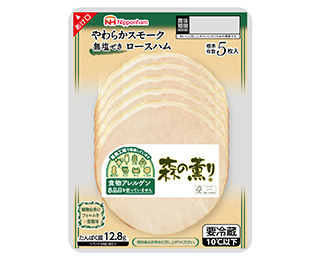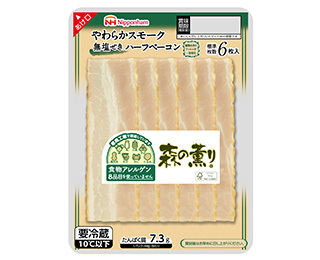Life cycle assessment is a method of evaluating the environmental impact of products and services. Environmental assessment is intended to evaluate environmental impact in advance, primarily of large-scale development and so on, but life cycle assessment identifies the environmental impact of individual products in each stage from production to shipping, sale, use, disposal, and re-use and involves discussion and investigation of improvement measures with stakeholders. NH Foods Group assesses and improves consideration for the environment through activities such as measures to address our carbon footprint.
Carbon Footprint Measures
Before products reach customers and are consumed, there are five major stages starting with procurement of ingredients (such as meats and wheat), production and processing and ending with disposal and recycling of product packaging (see figure below). We calculate how much of an environmental impact each of these five stages has and take measures to address the carbon footprint using the method of life cycle assessment to evaluate the impact.
NH Foods Ltd. sells products with the carbon footprint mark.
NH Foods displays the carbon footprint mark on the Mori-no-Kaori® series of ham, and bacon products that it sells.
Products with the carbon footprint mark can be viewed here.

Products with the Carbon Footprint Mark
| Product Name (contents, CFP Registration Number) | Product Photo | CO2 Emissions |
|---|---|---|
Mori-no-Kaori® Loin Ham (58g) |
 |
420g |
| Mori-no-Kaori® Half Bacon (48g) (JR-BD-21001C) |
 |
380g |
Note: For the above products, calculations were performed based on PCR for hams and sausages, and following verification by a CFP Verification Panel, approval was obtained to display the carbon footprint mark on products.
